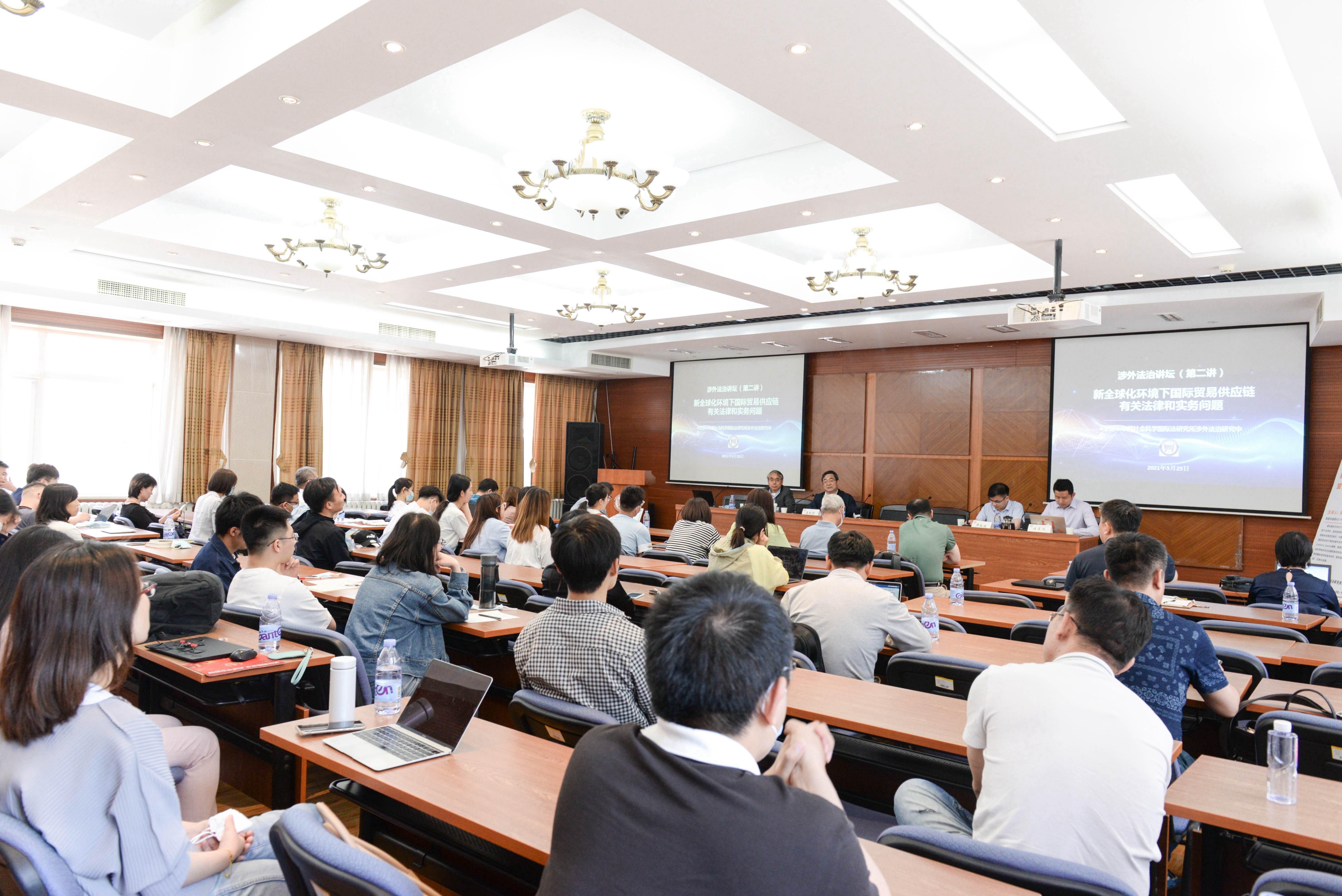The Forum on Foreign-related Rule of Law, organized by the Foreign-related Rule of Law Research Center of the Institute of International Law of the Chinese Academy of Social Sciences, was held in Beijing on May 25, 2021. Atthe Forum, Mr. Jiang Zhaokang, a lawyer specialized in customs and international trade, was invited to give a lecture entitled "Legal and Practical Issues of International Trade Supply Chain in the New Globalized Environment". The lecture was presided over by Professor Mo Jihong, director of CASS Institute of International Law.Assistant Professor Ren Hongda and Assistant Professor Tan Guanfu serviced as interactive commentators at the lecture. Nearly 50 people, including Director Liu Huawen, Deputy Director Liu Xiaomei, and Deputy Director Mao Xiaofei of the Center for Foreign-related Rule of Law Studies of CASSInstitute ofInternational Law, researchers of CASS Institute of Law and CASSInstitute of International Law, and members of China Customs Brokers Association, attended the lecture.
In the lecture, Mr. Jiang Zhaokang first reviewed the basic theories of international trade, including the theory of new capitalism, and different stages of the development of globalization, and pointed out that the monetary and fiscal policies of the United States are the main reasons for the excessive concentration, imbalance and unfairness of global trade.Then, he introduced the main measures taken by various countries to deal with the imbalance of international trade supply chain, including setting trade and investment restrictions, raising technical standards, protecting intellectual property rights, implementing labor, environmental and climate standards, signing regional free trade agreements, establishing foreign trade zone or bonded zones, standardizing fair competition practice in e-commerce, adjusting export control, etc.He also pointed out that when the government and enterprises make the above arrangements, they need to take into full considerationthe following factors on the basis of international trade rules:public health, national security, comprehensive costs, sustainable trade, proximity to consumption and regional markets, government supervision and compliance, digitalization and traceability,and mutual benefit and reciprocity. Finally, he expressed the view that governments, enterprises, non-profit organizations and professionals in various countries should conduct in-depth and detailed analysis of the relevant issues based on the principle of rule of law. The government should formulate reasonable and effective policies and standardize the implementation process, and enterprises should earnestly abide by the rules and deepen their understanding of each other through commercial negotiations and jointly respond to the new trend of changing globalization and provide a stable and sustainable environment for the international trade supply chain, so as to benefit local and global residents.




